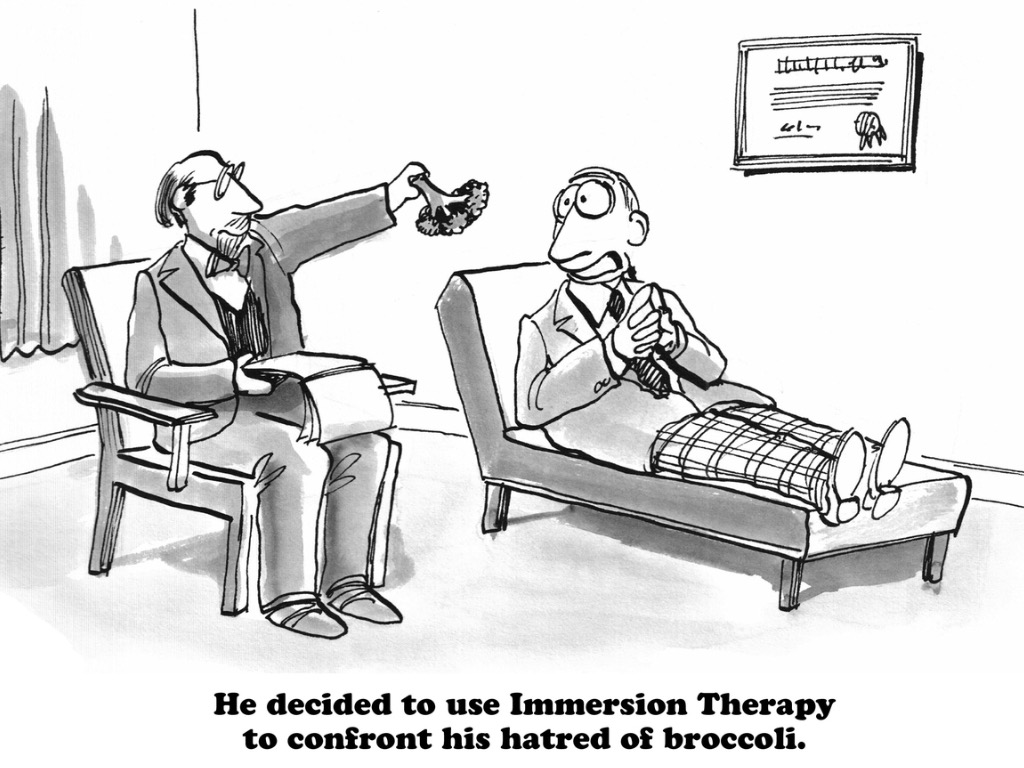Do not aspire to be called holy before you really are, but first be holy that you may more truly be called so. Live by God’s commandments every day. (Rule of St. Benedict 4. 62-63)
Of all the archaic vocabulary words that have become vestigial, holy has to be the most vacuous. We have no idea what it means, but we’re pretty sure we don’t want to go there. It’s probably the Christian equivalent of a no fat, no sugar, no salt, gluten-free, vegan blueberry muffin.
You try it.
(They make it look like a blueberry muffin, but a deep human instinct tells you that it’s going to be a bad experience.)
What we’ve heard about holiness is that there’s no money, sex or power in it. It’s sinless and spiritual.
Definitely go for it.
Naturally there are people who want to be holy, just as there are people who try to make you eat their special muffins. You pay attention to who they are, and you make a mental note to breakfast elsewhere next time.
(Of course we’re still friends!)
Although we don’t take the word “holy” seriously anymore in everyday speech, its cognate, “whole” is a workhorse we use all the time. Whole and holy are linguistic twins, but over the course of nine hundred years, the version without the W specialized as a religious term, while the other one got a regular job and put food on the table. At birth their meaning was: entire, unhurt, healthy, free of wound or injury. Whole also originally meant “restored,” in the sense of having recovered from a wound or injury, being healed.
As a matter of fact, the Old English parent word is still alive and kicking, pronunciation unchanged through the centuries. It is “hale,” as in hale and hearty, free from defect, disease or infirmity, retaining exceptional health and vigor. You could still use this word, if you ever met anyone who fit the description.
Linguistically it’s entirely plausible to assert that a holy life is a life restored to wholeness, a healthy, vibrant life.
Of course, St. Benedict was writing several centuries before any version of English existed at all. In Latin, his choice was “sanctum,” a word that English eventually swallowed whole to mean “sacred place.” For him and still for us, it means dedicated or set apart for the service of deity.
Latin was a pagan language. In Latin it’s possible to be sacred to the deity and therefore murdered; pimped out as a temple prostitute; locked in an iron cage and suspended over toxic fumes to induce entertaining prophecies for the pilgrims. No one ever claimed that the pagan gods were faithful friends. On the contrary, they were reputed to be fickle, capricious, cruel. You sacrificed to the gods in order to buy their favor, or to buy off their wrath. The thing (or the person) you gave was then sacred to the god. To be sacred to the god was to be consumed by the god.
But English developed as a Christian language and follows a different logic. Holiness merges the concepts “sacred” and “hale” inextricably. This is because our deity wants our good. He doesn’t want to consume us. He flaunts the whole concept of religion by requiring us to consume him. What he wants from us is an interior change of heart that produces action for good. When we’ve done wrong, he wants us to feel remorse and apologize to the person we’ve hurt. He wants us to feel pity and do something to help when we see someone suffering. When he gives us opportunities and resources, he wants us to feel responsible and work to establish justice.
In exchange for dedicating your life to him, he offers to make your death temporary. You will pass through death and emerge immortal. As for your experience in this life, the language itself bears witness that when you offer yourself to the service of Christ, resolving to live by his commands, you will experience a restoration to wholeness.
Live whole. Die good. Be hale forever.










